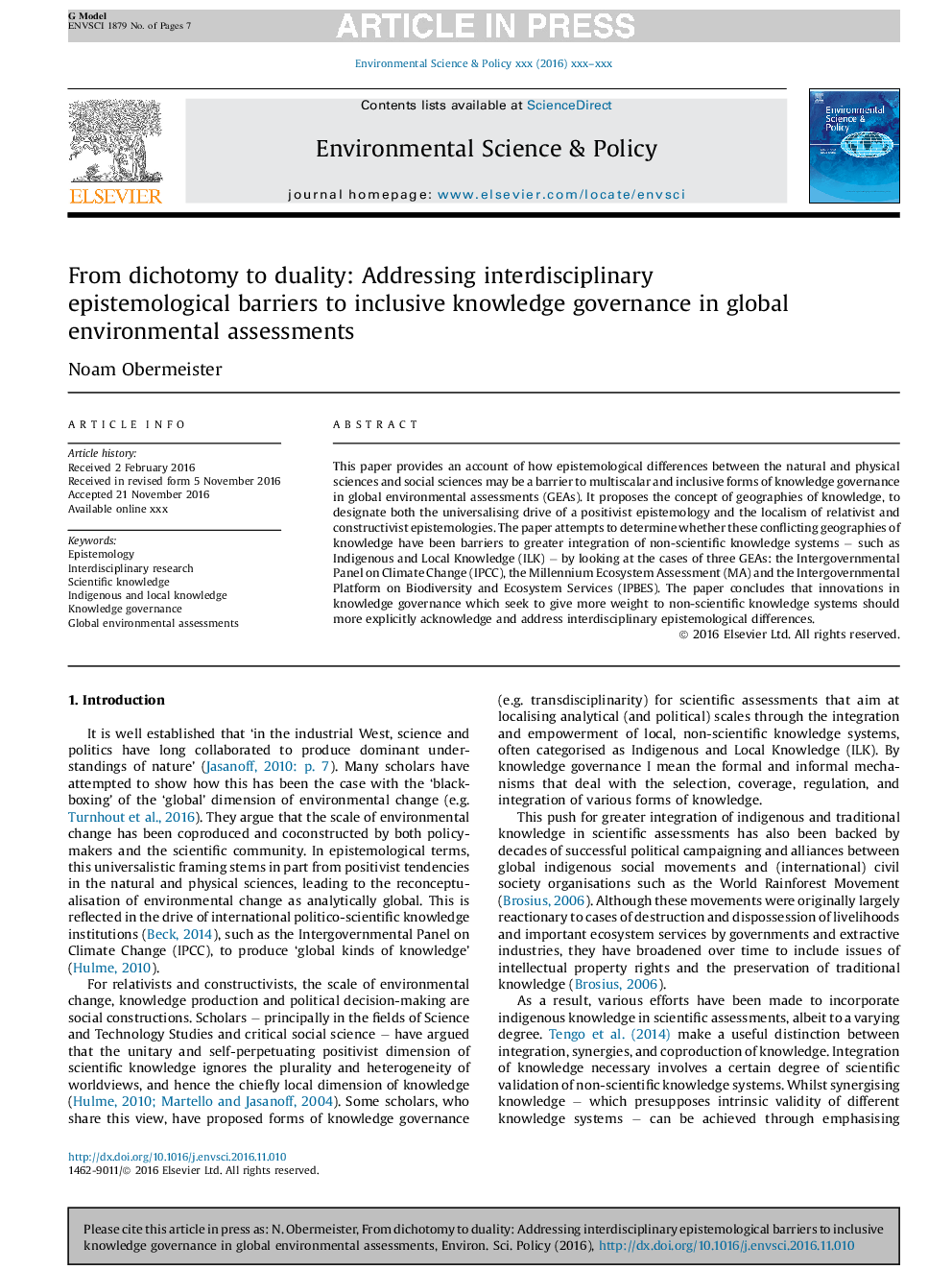| Article ID | Journal | Published Year | Pages | File Type |
|---|---|---|---|---|
| 5115838 | Environmental Science & Policy | 2017 | 7 Pages |
Abstract
This paper provides an account of how epistemological differences between the natural and physical sciences and social sciences may be a barrier to multiscalar and inclusive forms of knowledge governance in global environmental assessments (GEAs). It proposes the concept of geographies of knowledge, to designate both the universalising drive of a positivist epistemology and the localism of relativist and constructivist epistemologies. The paper attempts to determine whether these conflicting geographies of knowledge have been barriers to greater integration of non-scientific knowledge systems â such as Indigenous and Local Knowledge (ILK) â by looking at the cases of three GEAs: the Intergovernmental Panel on Climate Change (IPCC), the Millennium Ecosystem Assessment (MA) and the Intergovernmental Platform on Biodiversity and Ecosystem Services (IPBES). The paper concludes that innovations in knowledge governance which seek to give more weight to non-scientific knowledge systems should more explicitly acknowledge and address interdisciplinary epistemological differences.
Related Topics
Physical Sciences and Engineering
Energy
Renewable Energy, Sustainability and the Environment
Authors
Noam Obermeister,
